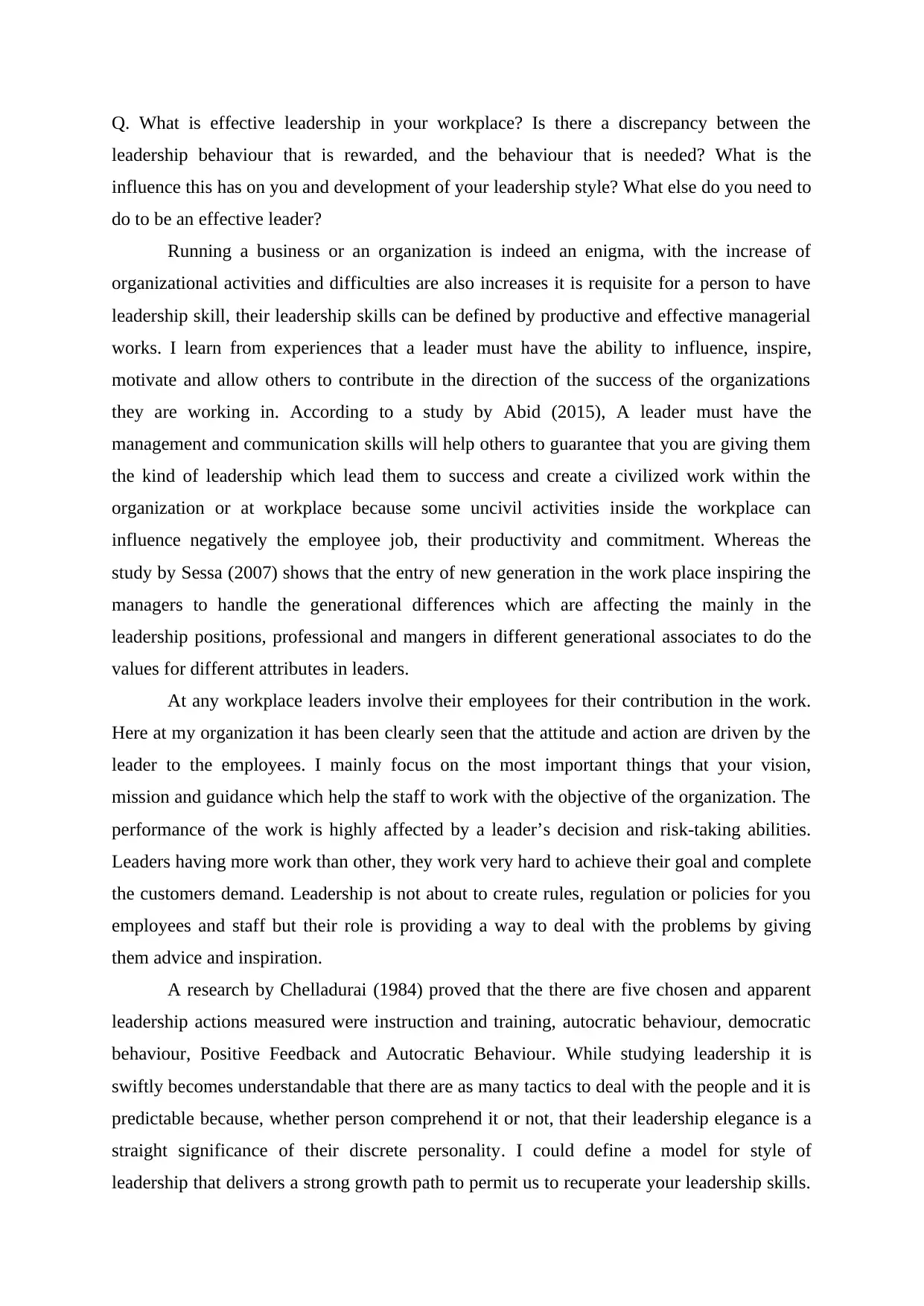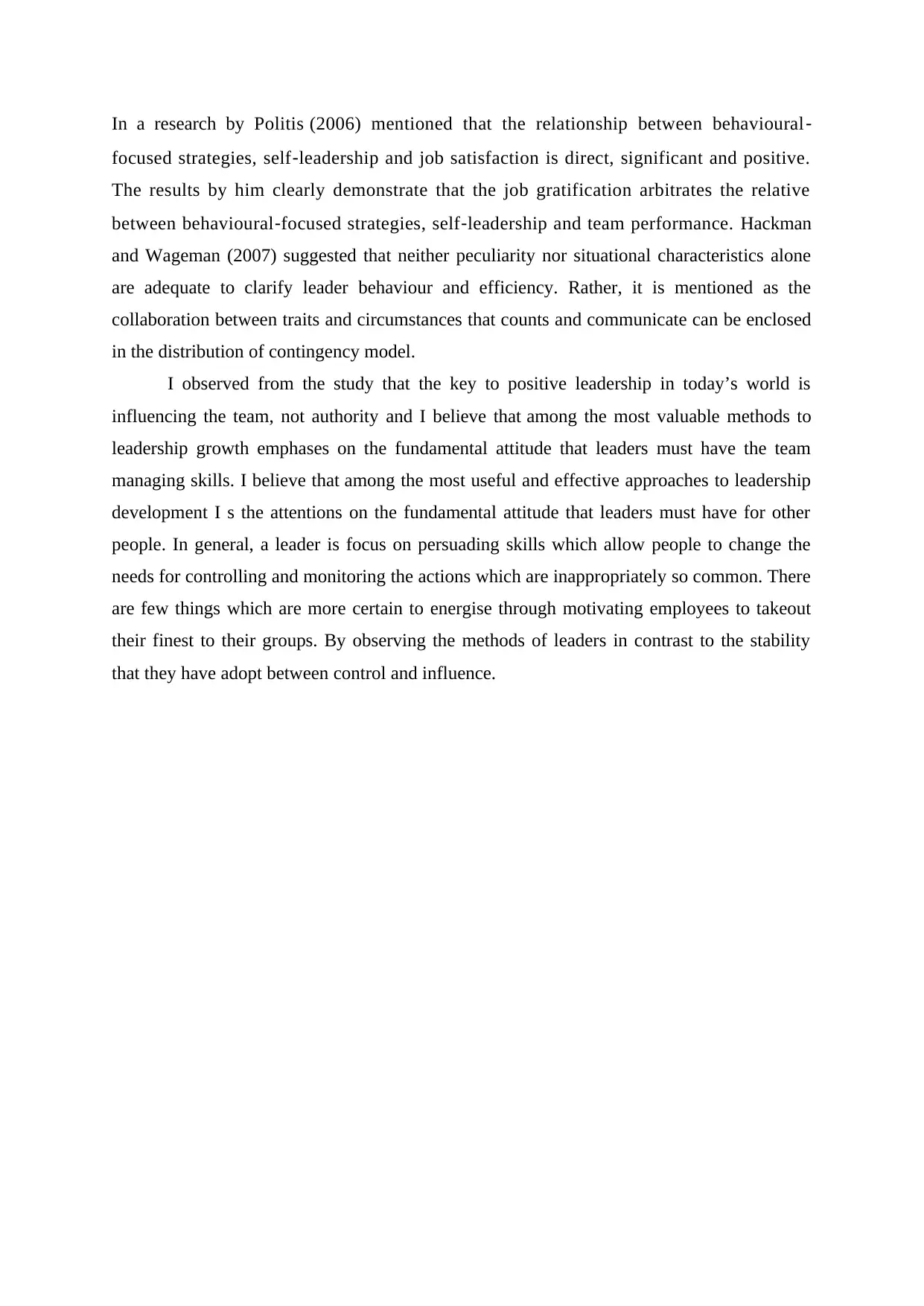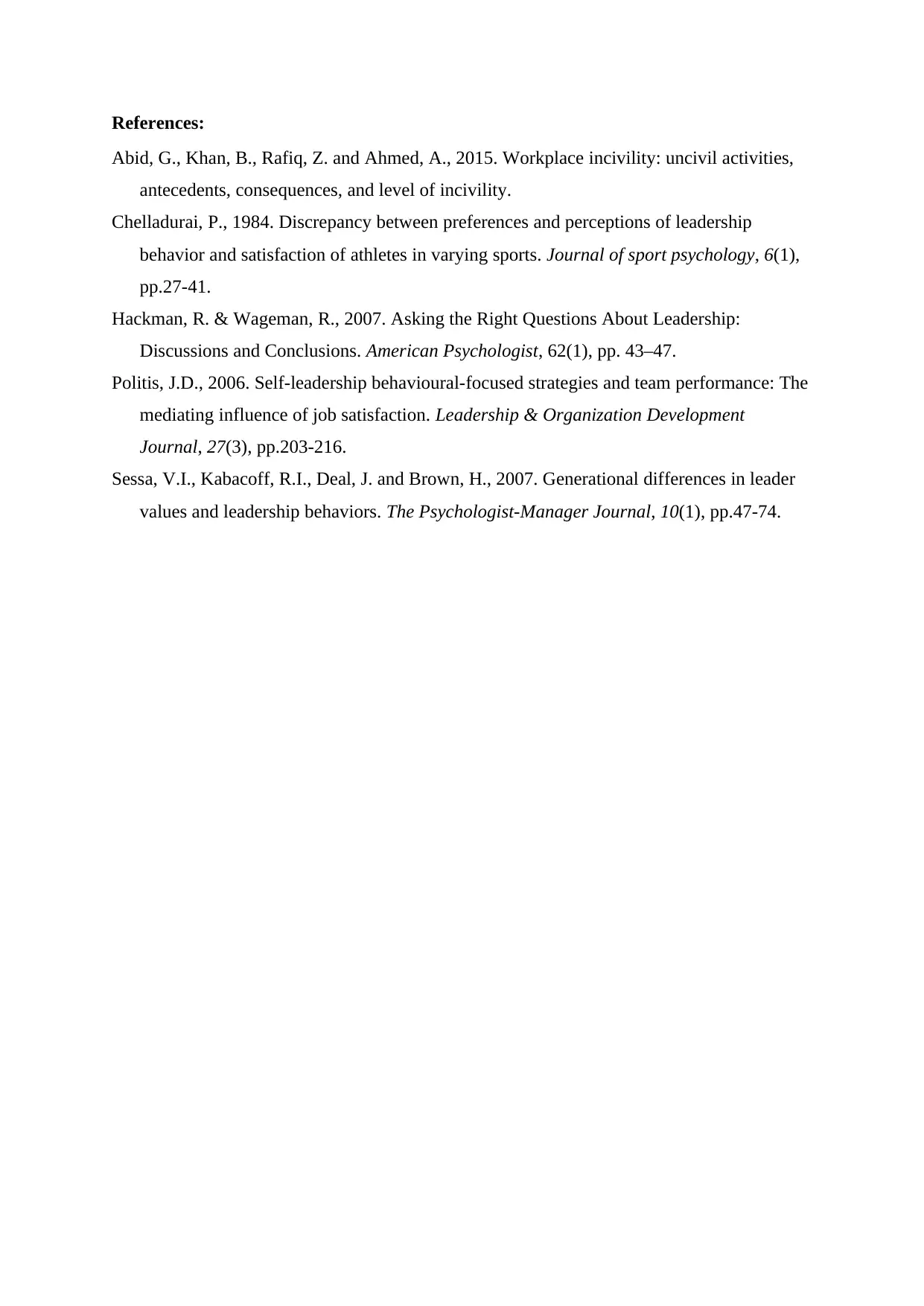HRM552 Leadership: Reflecting on Effective Leadership in Workplace
VerifiedAdded on 2023/06/11
|3
|925
|157
AI Summary
This assignment is a reflective piece on effective leadership in the workplace, drawing upon personal experiences and academic research. The author reflects on the qualities of a leader, emphasizing influence, motivation, and the ability to empower others. It examines the impact of leadership behavior on employee performance and organizational goals, highlighting the importance of vision, guidance, and decision-making. The reflection also explores the discrepancy between rewarded leadership behaviors and those that are truly needed, considering the influence of various leadership styles and the importance of continuous development. The author references studies on leadership actions, self-leadership, and contingency models to support their observations and insights, ultimately advocating for a leadership approach that prioritizes influence and team management skills. Desklib provides a platform for students to access similar solved assignments and resources for academic support.
1 out of 3








![[object Object]](/_next/static/media/star-bottom.7253800d.svg)